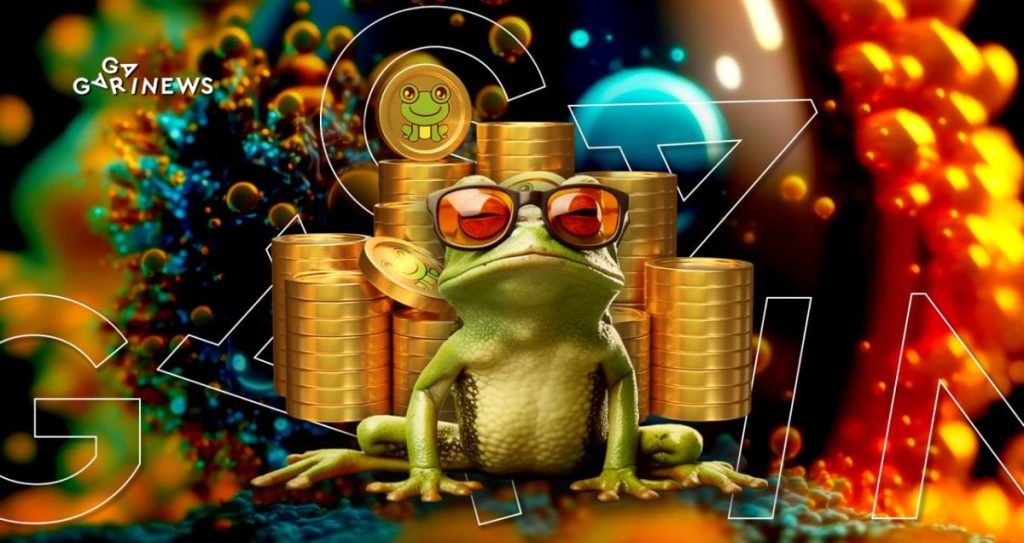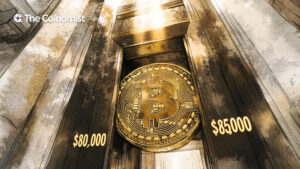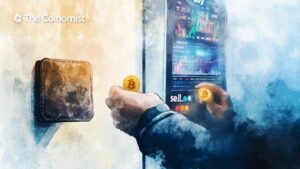DigiToads (TOADS): A Utility Meme Token or a Scam?

“No more frogs, only toads,” is the slogan on the new DigiToads project’s website.
It's an interconnected ecosystem. The meme token TOADS has governance and utility functions, there's a Play-to-Earn NFT game, and a staking pool.
At the time of writing this article, DigiToads is in the presale phase of its own token. The founders have already raised $5.7 million. The next step is the listing of TOADS on the Uniswap and Bitmart cryptocurrency exchanges, planned for July. Following this, users can expect the release of NFTs for gameplay. But is the project trustworthy?
What raises suspicions?
Let's start with the basics. The official website, digitoads.world, contains grammatical errors, inaccuracies in definitions, and even discrepancies in the project description and token name.
For instance, the creators initially refer to their token as TOADS, then later call it TOAD. They also haven't settled on a consistent description of what DigiToads is. On the main page of the website, it's described as an amazing utility memecoin. Immediately after, it's referred to as a Web3 game, and at the end of the site, it's presented as an exciting Web3 platform that includes a memecoin, NFTs, staking, and P2E games. In the “how to buy” section, it's simply stated that TOADS is a “meme coin token and platform”.
The home page of the DigiToads website, source — digitoads.world
There's also concern about the significantly high percentage of the preliminary distribution of DigiToads tokens, which is 46.58% or 69.29% of the total amount. The founders themselves seem unsure, as the distribution data in the White Paper and on the website differ. A high percentage of tokens for presale could initially lead to a sharp price increase, followed by a collapse.
Token distribution in the White Paper, source — digitoads.world
TOADS distribution infographic on the website, source — digitoads.world
On top of everything else, users are imposed a 7% fee when purchasing tokens and another 7% for selling them. These fees are allocated among the token burning process, the staking pool, liquidity, and the treasury. Such terms are commonly found in projects that primarily aim to gather funds and vanish, leaving investors high and dry.
DigiToads puts forward an overwhelming number of incentives:
- 50% of in-game item sales are distributed among the top-ranking leaders, those who are in the top 25% of the leaderboard;
- 10% of all sales are directed to the wallets of all TOADS holders;
- Each month over the span of a year, competitions will be held in the game, with one NFT Platinum Toads up for grabs;
- Platinum Toads holders gain access to a twelfth of the treasury and also receive a 10% cut of the treasury's profits;
- Owners of three or more game NFTs are offered free trading courses.
These numerous enticing features might act as bait.
While the DigiToads smart contract has been vetted by auditing firm Coinsult, a disclaimer next to the audit results on its website clarifies that Coinsult will not be held accountable if the project turns out to be fraudulent.
So what's the word on DigiToads over on Reddit?
On May 25, a user by the handle cryptouser01 voiced suspicions about the people communicating in the project's Discord group. He posits that the majority of them are bots designed to entice newbies into investing. He came to this conclusion after observing their eerily similar ways of communication.
Cryptouser01's comment, source — reddit.com
The Reddit user reported being booted from the group when he began to probe with uncomfortable questions. Furthermore, cryptouser01 noted that the project has a substantial amount of paid content across various cryptocurrency publications and YouTube channels.
Adding to this, on June 19, an individual going by the handle geealls posted that a phishing link to a counterfeit project site was shared in the official DigiToads Telegram channel.
Why isn't a listing on a Centralized Exchange (CEX) a safety guarantee?
We noted earlier in the article that the token will be listed on the centralized cryptocurrency exchange, Bitmart, a fact also broadcasted on the trading platform's official Twitter page. Many users interpret this as a testament to the project's authenticity and reliability.
However, this isn't necessarily true. Fraudulent projects often set up rules that limit investors from selling their newly acquired tokens during the first few hours of the ICO. In the meantime, the project creators dump their worthless tokens. Naturally, they wouldn't disclose this fact. The end result is the creators pocketing a profit while the token price plunges below the presale level, even before users can take any action.
The token lock-up mechanism during initial sale periods is generally considered a standard practice, but it's not when the project founders are the ones dumping their own tokens. Hence, caution is advised.
The content on The Coinomist is for informational purposes only and should not be interpreted as financial advice. While we strive to provide accurate and up-to-date information, we do not guarantee the accuracy, completeness, or reliability of any content. Neither we accept liability for any errors or omissions in the information provided or for any financial losses incurred as a result of relying on this information. Actions based on this content are at your own risk. Always do your own research and consult a professional. See our Terms, Privacy Policy, and Disclaimers for more details.





























